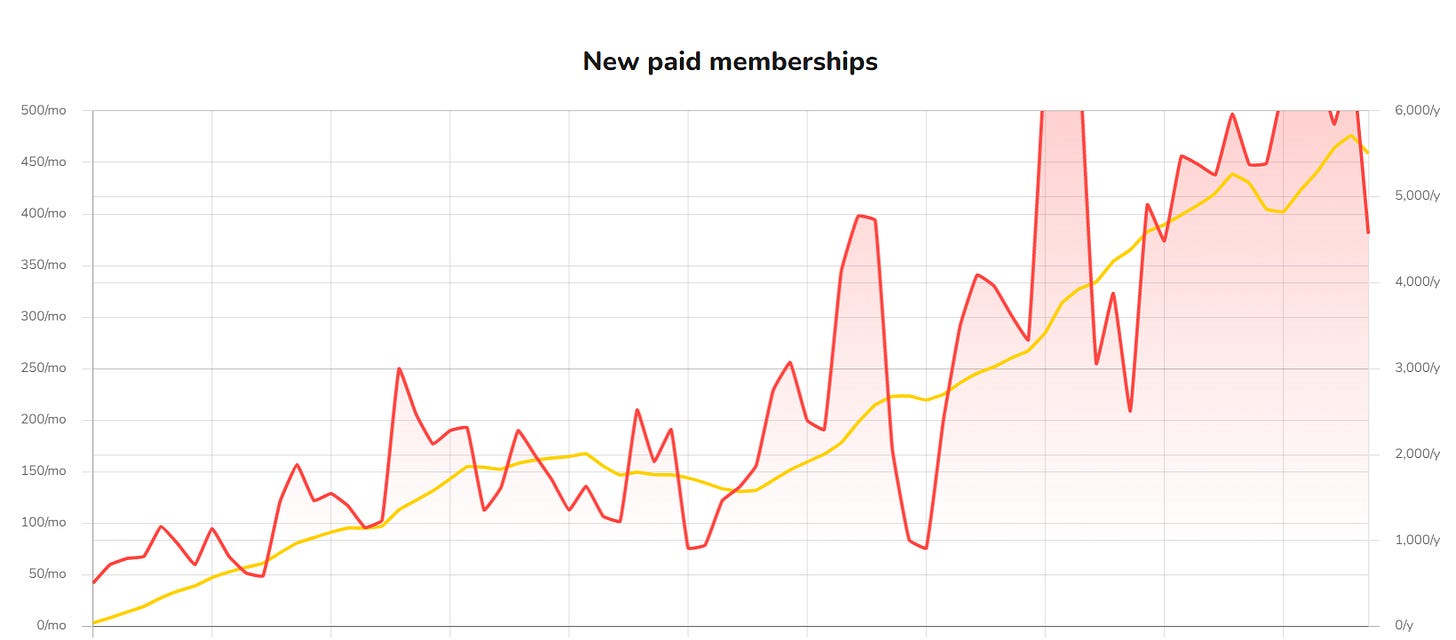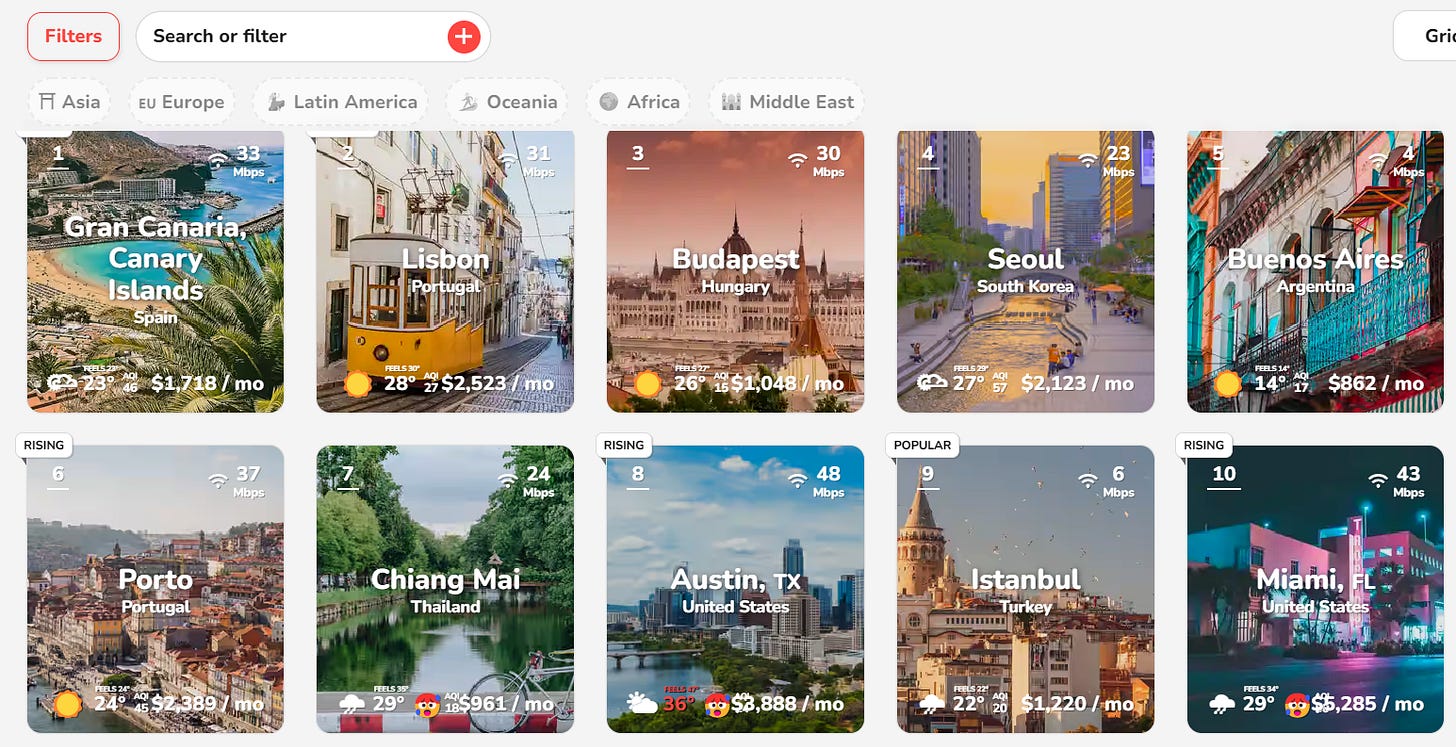The dawn of the digital nomad
When are you becoming location independent? I think sooner rather than later.
A few minutes ago a friendly Bulgarian local commented on my laptop setup.
I told him that this laptop was my life and that I travel and work online. His eyes lit up and immediately started telling me how he has ambitions of traveling while working remotely. We chatted about the subject of traveling while working for a few minutes and I gave him some tips, and introduced him to nomadlist.
I could see his excitement at the idea of visiting Colombia, Thailand and other exotic locations. His energy faded just as quickly when he started to explain to me the challenges he would face in changing his lifestyle because of the constraints of his current job.
Daniel, my new Bulgarian friend, and tens of millions of other knowledge workers are starting to wake up to the idea of working remotely (and traveling, at least part time).
Covid indirectly introduced hundreds of millions of people to one key aspect of what digital nomads experience all the time; earning an income without being in an office.
I believe we’re in the middle of a new wave of individuals choosing the digital nomad lifestyle.
Don’t believe me? Check out the graphs below from Nomadlist. Pieter Levels, the founder of Nomadlist has chosen to have Nomadlist as an open startup. This means we can see all the cool growth numbers, including number of new members joining the community.
Let’s explore what the world could look like just a few years down the road as the digital nomad lifestyle becomes more mainstream.
Influx of tourist dollars to infrastructure-mature developing countries
One of the best aspects of the digital nomad lifestyle is geoarbitrage. Geoarbitrage is when you take advantage in the difference between earning an income in one country or currency, and the cost of living in another country. For example, if you live in South Africa but get paid by a US company, or by UK clients. You could live quite comfortably in South Africa on $1k - $2k USD compared to $3k - $5k in most cities in the US. The difference is the arbitrage you leverage by living in South Africa and earning in USD.
For this reason, countries like Thailand, Vietnam, Colombia, South Africa, Bulgaria, Mexico, etc will see an influx of knowledge workers taking advantage of geoarbitrage.
Nomadlist is the largest online community of digital nomads. One key aspect of the platform is the ranking of popular locations.
Not all countries will benefit from this trend equally. Digital nomads come in all shapes and sizes but we all have a common need: good infrastructure.
There is a reason why you won’t find many African and South American locations in the top 100 cities on Nomadlist. A city will only make the list if at the bare minimum it has reliable, speedy internet.
Developing countries with world-class infrastructure will disproportionally benefit from this trend. Thailand, Vietnam, and Eastern Europe would be the top of my list. Mexico and South Africa are also gaining a lot from this trend but the state of their infrastructure is holding them back from becoming top choices for a lot of nomads.
Counties will start competing for your tax dollars
Countries like Thailand, Argentina, Greece, Spain and many others are already exploring the option of implementing better, more attractive visas targeted at knowledge workers.
This is a great step in the right direction since visa constraints are the main barriers preventing digital nomads from spending more time in their favorite locations. I personally would spend 6 months of every year in Thailand if I could, but unfortunately the standard tourist visa is limited to 30 days (you can extend it for another 30 days in country).
Part of the incentive of implementing visas targeted at knowledge workers is to compete for their tax dollars.
I believe most seasoned digital nomads have at least considered the option of setting up offshore businesses to pay less tax, or to remove other bureaucratic difficulties from their lives.
I’ve personally been thinking about this a lot over the last 6 months. As my business grows I have to consider the fact that I’m paying tax in a country where I don’t receive any of the benefits.
As the population of digital nomads grows, so will the ecosystem of service providers. Rebase, another project by Pieter Levels is a great example of a relocation service aimed at digital nomads that want to set up their lives in Portugal, a country which checks a lot of boxes for the average digital nomad.
I can see a world where high-earning knowledge workers will have multiple options for where they pay their taxes.
So do I think that in the next few years we will see an ever growing number of people opting for the digital nomad lifestyle? Yes I do and I expect this number to grow exponentially.
Covid changed how the world perceives work and our relationship to it.
As more and more people on the fence see their colleagues spending a few months each year working from coffee shops in Barcelona, Athens and Lisbon, the more likely they will be to follow suit.
As word spreads that Croatia, Greece, Spain, Brazil and other countries have launched digital nomad visas, more people will choose to leave their expensive apartments in London, New York, and Berlin and take advantage of geoargitrage.
Why scrape by when you can live like a king in Chiang Mai, Mexico City, or Da Nang?







